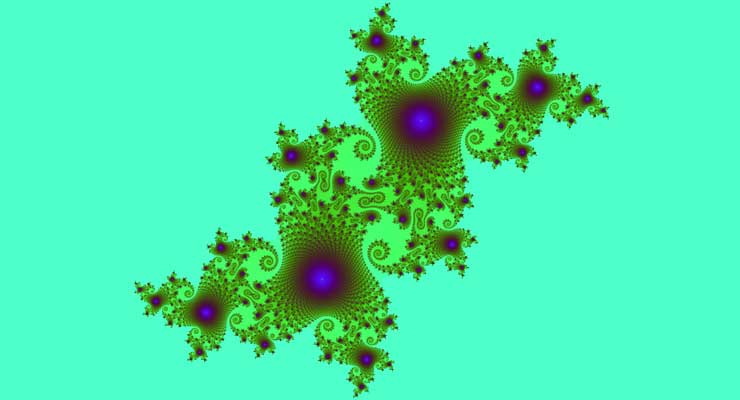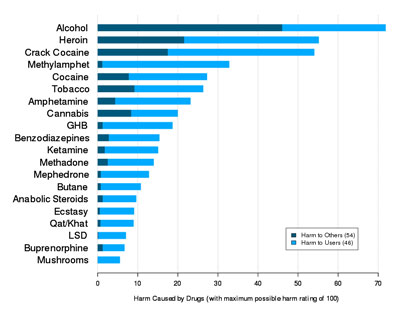
Two groups sponsoring upcoming ballot initiatives in Denver, CO, and Oregon aim to eliminate penalties for “magic” mushrooms which contain the psychedelic psilocybin this year. In our democracy ballot initiatives can be the most effective form of democracy as they minimize the distorting effects of money politics on legislatures.
If approved the Denver version on this year’s ballot seeks to decriminalize mushrooms, whereas in Oregon’s initiative (in 2020) a more “medical” approach with doctors and therapists is sought. Neither initiative intends to fully legalize, a la marijuana, but nevertheless this is a promising turn of events.
Although many medically successful studies were done in the 1960s, politics and the war on drugs kept psychedelics stigmatized and out of the lab until the last decade or so. Since then, a renaissance of medical research less concerned with the harms of these drugs, for it is well established the harms are vanishingly small, seeks to understand how and why they are so effective in the treatment of psychiatric conditions. These include major depression, PTSD, end of life anxiety, obsessive compulsive disorder and various addictions.

Keep in mind there are no cures for any psychiatric illness, just varyingly useful treatments, and no new antidepressant has been invented in several decades. The legitimization of psychedelics promises to be a game changer for several crucial fields of psychotherapy.
Humans have been successfully using psychedelics (“mind manifesting” in Greek) in mushrooms for thousands of years in places as diverse as the Americas and Siberia, and still do in some places. There’s an underground culture of radical therapists working illegally on the above medical problems now. Unfortunately this tends to come with a bunch of shamanistic woo-woo, but the drugs themselves are far from placebos or fake medicine.
And the game must be changed: the long effects of psilocybin require a full day’s therapy rather than a 21st century 50 minute session. This is a vital constraint going forward as our system is not designed for that kind of dynamic. Nor are drug companies very interested in a medication which patients don’t have to take every day for years.
Although the “trip” takes five to ten hours, the benefits to the patients can exceed many months. For treatment of some mental disorders, changed perceptions and methods of thinking can last years.
If you don’t know what they do, trying to get an understanding of psychedelics from the mass media is akin to studying baseball statistics in an effort to learn how to scuba dive. General media coverage has improved lately but most media, right and left, repeat urban myths, half-truths and hand-me-down falsehoods.
Responsible places to learn the medical facts are at psychedelic-library.org or maps.org and various neuroscientists have a number of TED talks available. For the more educated and interested, scientific papers and raw data are published online, usually for free.
Hallucinogenic psychedelics work on the neurotransmitter serotonin 2A which affects all sensory perception. Note although psychedelics like psilocybin, LSD and mescaline differ in chemistry and effect to some degree, essentially they are very similar. Hallucination in this context is more an altered perception of reality, time and ego than seeing non-existent dancing pink hippopotamuses or other folkloric myths.
Emotionally, fMRI studies liken the tripping state to deep meditation and it is routinely described (as much as one can) as a quasi-religious awe inspiring experience people rarely forget. The mechanism of this is the quieting of the brain’s default mode network, a constellation of brain areas responsible for self, ego and identity. The vast majority of experiences reported in the literature and anecdotally by hobbyists are memorable and positive.
Due to a lack of effect on the neurotransmitters D1/D2 dopamine and endorphins, no psychedelic is addictive. This is in contrast to the seductive, repetitive and compulsive allure of drugs such as opiates, cocaine, nicotine and alcohol whose addictions act with D1/2 on an area called the VTA: ventral tegmental area. Psychedelics are not carcinogens or tetratogens (causing birth defects) in humans. Regarding overdose, it’s technically incorrect to say one can’t theoretically overdose to death on them, but it is a fact that nobody ever has.
A final warning: psychedelics aren’t for everyone. Some patients, particularly schizophrenics, are strongly urged to avoid them for a variety of reasons. And there are many healthy individuals who simply don’t like the idea of their mental structure of reality being shaken up. They are absolutely not something to play with on a dare or a whim.
Those tempted to experiment free-lance on their own, however, should be aware of some important facts. The first is legal: terrible prison sentences are routinely handed out for sale or possession of psychedelics in non-research settings. The actual medical harm of all our forbidden chemicals, psychedelics particularly, doesn’t map on to their legal treatment though. If anything the severity of sentencing works inversely to the respective harms of Schedule 1 (prohibited) drugs.
Second is the “set and setting” proviso. Many “bad trips” are actually the result of bad set and setting: where and how one takes them. These are incredibly powerful drugs and once you take them you’re strapped in for the entire ride. The presence of a therapist, guide, or experienced trusted friend is vital, “set” wise. Regards “setting,” a relaxed day in a very safe place is not only recommended, but essential.
The science has been solid for a long time but as usual the politics are decades behind it. As often with public policy, it is a battleground where perceptions and misguided policy cries out for scientific rationalism. To do so could change millions of lives for the better.
Jack Jones says
Great article well thought out, well put. I think balance and common sense are the disciplines we lack in the States, In the land of no, you can’t and it’s wrong? Jack Jones
Daniel Shields says
Thank you for sharing and spreading awareness! I hope that this magical plant would not be abused and misused. Everything, if used properly and moderately proves to be beneficial. I hope this could be the future treatment of a lot of diseases. It has endless capabilities!